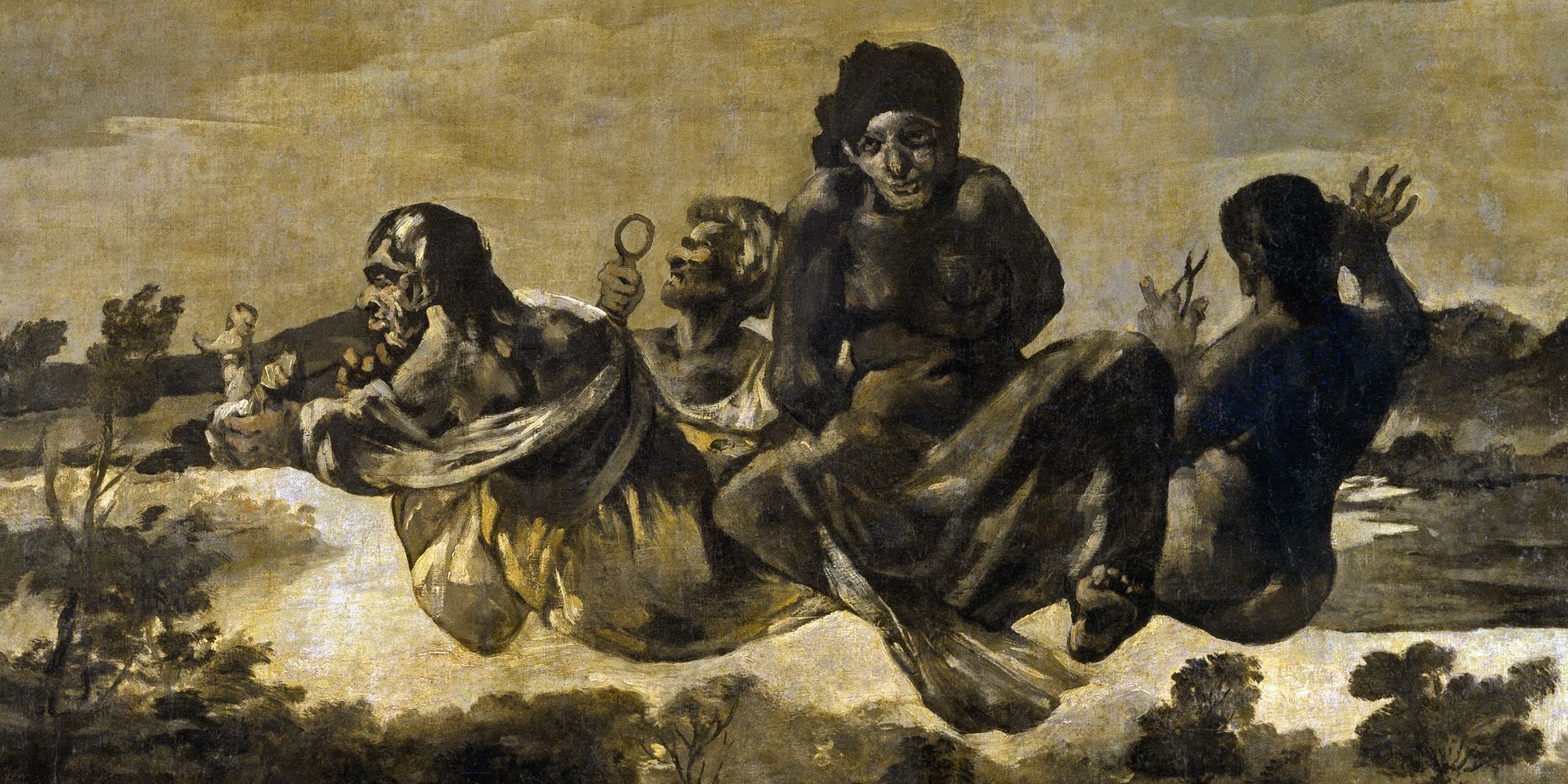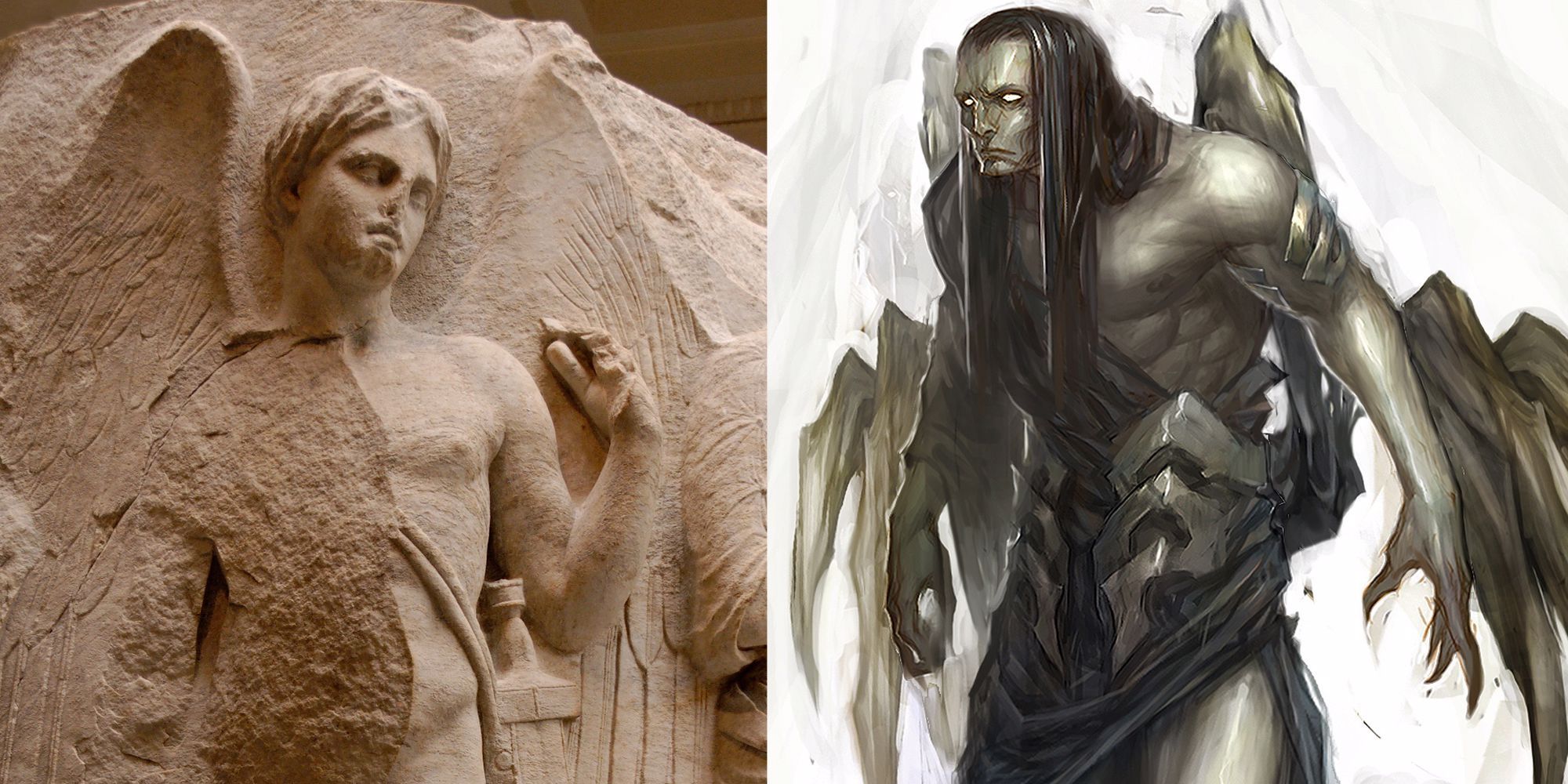The God Of War series of games has been an excellent introduction to both Greek and Norse mythology for many players. Their depictions of various gods from European mythology have served both thrill and challenge players, with most of the deities appearing in the games as either central characters or boss fights.
However, some Gods and deities depicted in the games are nowhere near as powerful as they are in their original myths. Presumably, the following ten deities had to have their powers reduced to make the encounters against them winnable in a gameplay context.
Updated on November 3rd, 2022, by Ritwik Mitra: God of War is one of the most beloved hack-and-slash franchises around, with the emotional core of the game's narrative reaching a whole new level in the reboot. Watching Kratos turn from the angriest video game character of all time into a father who genuinely wants to do better for his child makes for a great character arc indeed and rewards players who have stuck around with this character for the longest time.
The God of War games obviously feature a bunch of divine entities from both Norse and Greek mythology. These gods are extremely powerful, which is why taking them down in the games is such a blast. However, there's no denying that certain gods in the series are simply weaker than their video game counterparts, with the biggest disparities being mentioned below.
10 Freya: The Goddess Of Fire, Love, Beauty, And Fertility
Freya played a major role in God of War 2018, aiding the player at every step of their journey and giving Kratos and Atreus the means to tackle numerous threats scattered across the realms of Midgard. She also helped out a distraught father when Atreus had been afflicted by a mysterious illness, which is why it's understandable why she was distraught after Kratos decided to end Baldur's life for good instead of giving Freya a chance to undo her wrongdoings.
This caused the goddess to go into a rage, putting her in a prime position to be one of the antagonists who would hound Kratos and Atreus every step of the way during their second journey. While she definitely has pretty impressive powers of her own, there's no denying that her actual mythological presence is far more powerful in many ways. The fact that she's also the god of battle and death is something that is not lost on anyone, and she's known for teaching the ways of witchcraft to the Aesir too!
9 Magni: The Son Of Thor
Magni is the only Norse god to be included in this list, mostly because many of the main players in Norse mythology have either not yet appeared in the games (like Odin and Thor) or have been depicted accurately. Of course, this is bound to change with the advent of God of War: Ragnarok, which is bound to feature several Norse gods who will either stand with or against Kratos.
Like his brother Modi, Magni is depicted as being exceptionally strong, going head-to-head with Kratos in a boss fight. In Norse mythology, however, it was stated in the Skáldskaparmál legend that Magni was strong enough to topple a giant single-handedly. Interestingly enough, nothing else is known about Magni, and absolutely nothing other than a name and his relation to Thor is known about Modi.
8 Hermes: The Messenger God
The set-piece of chasing Hermes through a crumbling Olympian city in God Of War 3 is fondly remembered by many fans and accurately shows off the speed of the messenger of the gods and his penchant for being a trickster.
However, where this depiction falls flat is during the actual boss fight, as Hermes is depicted as being relatively defenseless against the merciless Kratos. In mythology, Hermes had many powers, including the ability to put mortals and demigods to sleep instantly with the aid of his staff, the Caduceus (which is missing in the game). It is possible this ability was cut ,as this would have made a boss fight against him somewhat frustrating.
7 Aphrodite: The Goddess Of Physical Love
Aphrodite only makes one physical appearance in the games, and it's a fairly disappointing one. She appears late in God Of War 3 as part of the "sex" minigame, a strange fixture of the original series, with one of these appearing in every game in the series before God Of War 2018. It seems that the latest games have become more tasteful in their depiction of women, and most people would appreciate that the members of the fairer sex are shown more as actual people than trophies that players can interact with via some rather crude minigames.
This depiction is extremely disappointing as it sees the Goddess of physical love being boiled down to her very basic concept and presents her as being a figure that is uninterested in the war against the Olympians. This is doubly disappointing considering that Aphrodite was one of the goddesses who caused the Trojan War,and was known to be powerful enough to force mortals into insane love against their will.
6 Hephaestus: The Blacksmith
Like his wife Aphrodite, Hephaestus' appearance in the God Of War series is also lackluster. While he is a little more relevant to the plot than his estranged wife, his "boss" fight can barely even be described as one, and if it does count, then it is the easiest one in the series.
Granted, when Kratos meets Hephaestus, he is a shadow of his former self - a depressed, imprisoned figure who is being forced to work for Olympus. However, many fans were disappointed to see that the God of Volcanoes did not have a magma or lava-themed boss fight. The fact that he's a legendary blacksmith could've also played a role in this fight, letting him or his henchmen wield his powerful arms to inflict a ton of pain on Kratos during this battle.
5 Athena: The Goddess Of Wisdom
One of the main characters of the franchise, Athena lives up to her role as a great influencer and thinker in the series, as she is the God that has probably shaped him the most, apart from his father, Zeus. However, she is not seen "doing" much in terms of physical actions in the games. While she is generally known in Greek mythology for being fair and wise, this does not mean she was above using her godly powers to torment mortals.
A ruthless show of power that Athena liked to demonstrate was to transform mortals into new, weird, and even terrifying creatures. She is responsible for creating the monstrous form of Medusa (who was originally very beautiful), as well as the creation of the "spider," where, according to the Arachne myth, she transformed a lover of Poseidon into the originator of the eight-legged insect for daring to make love in her temple.
4 Helios - The Personification Of The Sun
The power of Helios in the games is fairly contradictory, with it varying from game to game. As one would expect, when originally introduced in the PSP exclusive God Of War: Chains Of Olympus, he is shown to have enough power in him to topple the foundations of Olympus. This level of power is accurate to his depiction in Greek mythology.
However, when seen later on in the series, in the raging battles of God Of War 3, Helios is depicted as only having enough power to shine an exceptionally bright light, but not one anywhere near enough to destroy entire structures. The fact that most people only know Helios for the brutal nature of his demise in the game proves just how weak his incarnation in the game really was.
3 Typhon - The Mightiest Of All Creatures
According to the Greek poet and philosopher Apollodorus, Typhon was the strongest being alive, one who was feared by all and who was only barely beaten back by the combined might of all the Olympian gods. He is described as being impossibly huge, with "one of his hands reaching out to the west and the other to the east, and from them projected a hundred dragons' heads." He is also described as being, in terms of raw strength, to have "surpassed all the offspring of Earth," this should make him, theoretically, the most powerful character in the franchise before God of War 2018.
When seen in the games, Typhon is shown as being large enough to be the stage he appears in, but despite this, he is nevertheless presented as nothing more than an inconvenience for the player to not even really fight but bypass.
2 The Sisters of Fate - Those Who Decide Your Destiny
The fates are depicted as being incredibly powerful in their appearance as the secondary antagonists of God Of War 2. One of the sisters, Clotho, is shown to be able to reverse time, while the other two sisters, Lachesis and Atropos and seen to have a plethora of magical attacks and giant weaponry. But this depiction pales in comparison to just how powerful they are in Greek mythology.
The fates (otherwise known as The Moirai) were not beholden to the will of the Gods; indeed, in many myths, they are depicted as deciding even the fate of the Gods themselves! Not only this, but they also had the power to instantly end the life of anyone, be they moral, God or Titan. Knowing this level of power then, it becomes understandable that the developers chose to have their powers somewhat toned down.
1 Thanatos - The God of Death
The main villain of God Of War: Ghosts Of Sparta, another PSP entry in the series, Thanatos is depicted as being a traditionally sinister "Grim Reaper" kind of character, one who is responsible for killing many people close to Kratos.
In his main appearance in Greek mythology, the "Theogony," Thanatos is tricked by King Sisyphus into becoming chained up at the bottom of the Underworld. As a result of this, no mortal is able to die, much to the frustration of Ares, who then liberates Thanatos so that war can have its deadly impact once again. This myth essentially states that Thanatos is the reason mortals die, and without his influence, mortals could live forever. A more subtle display of power than the other Gods on this list, but perhaps, the one that has the most influence on the lives of mortals.

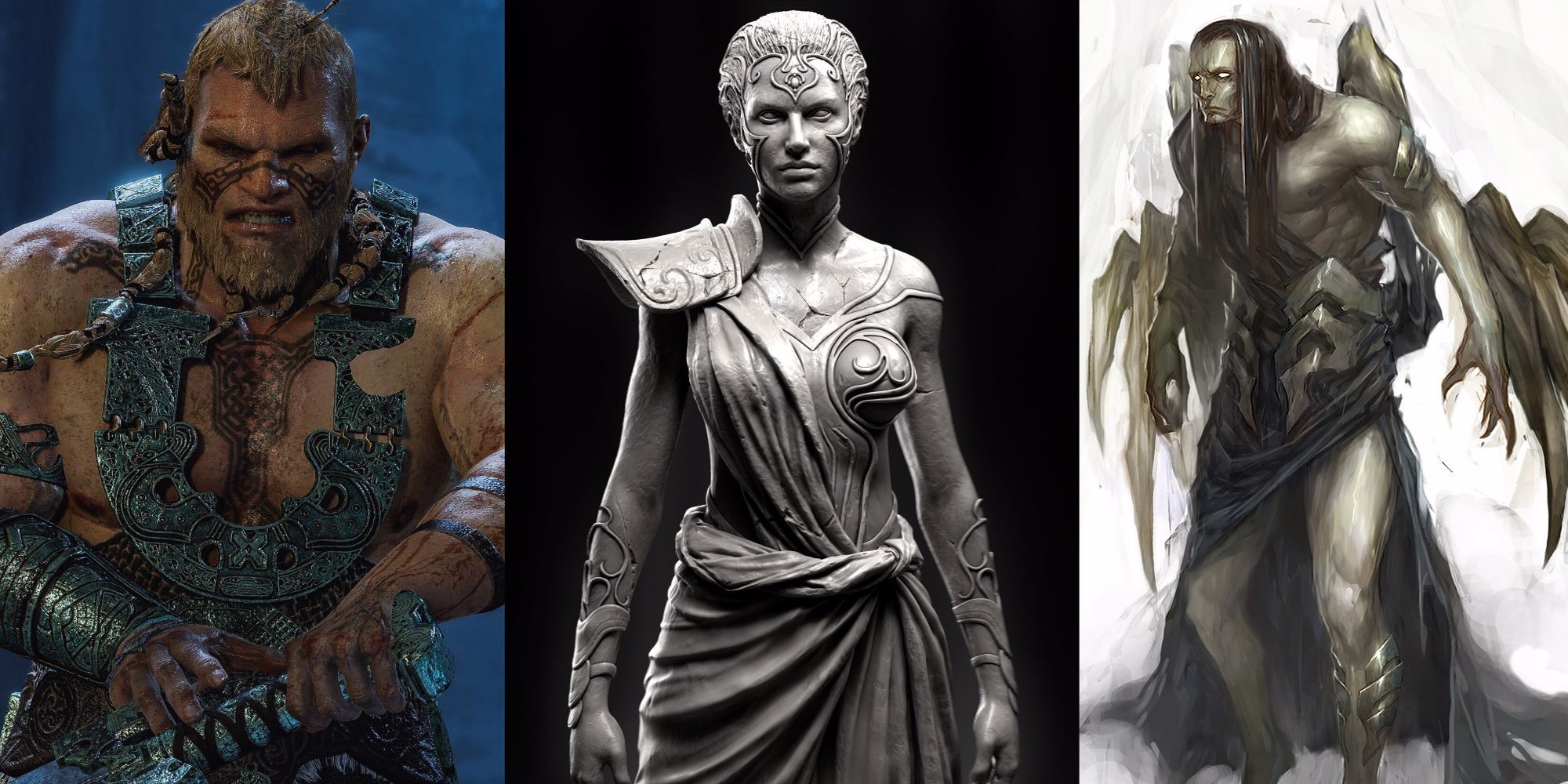
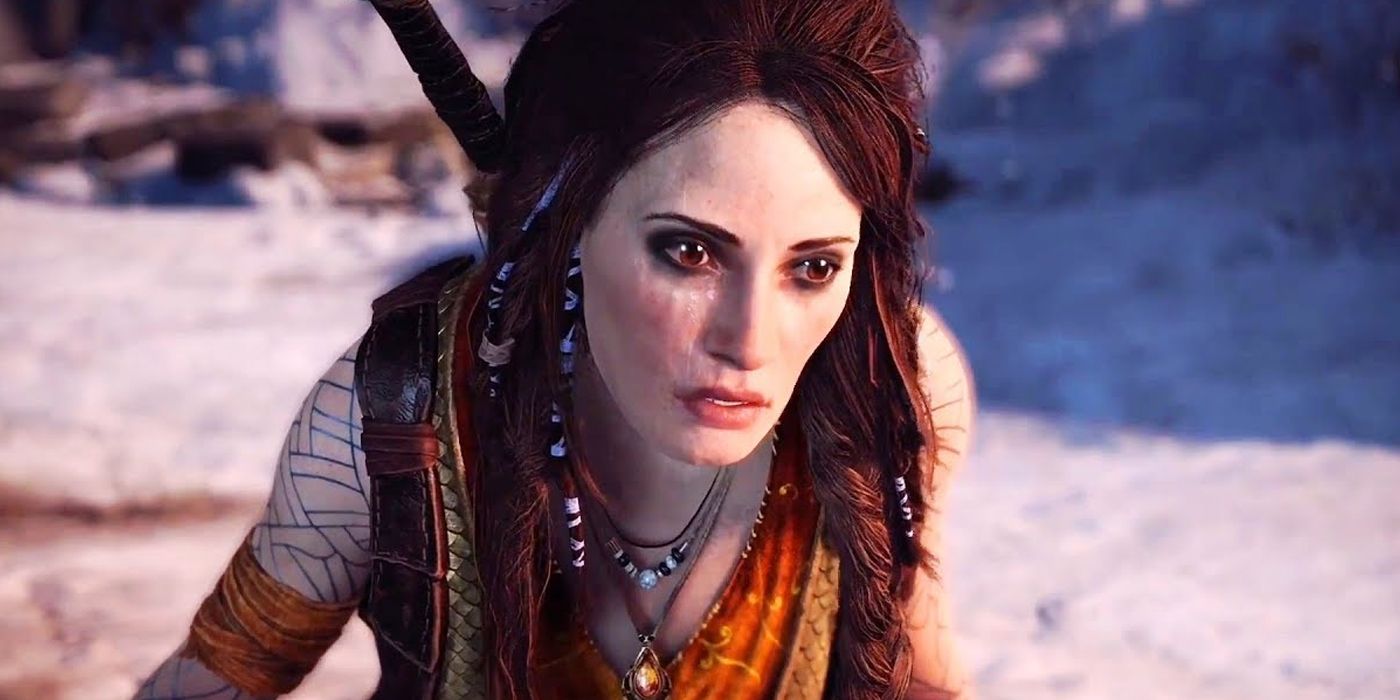
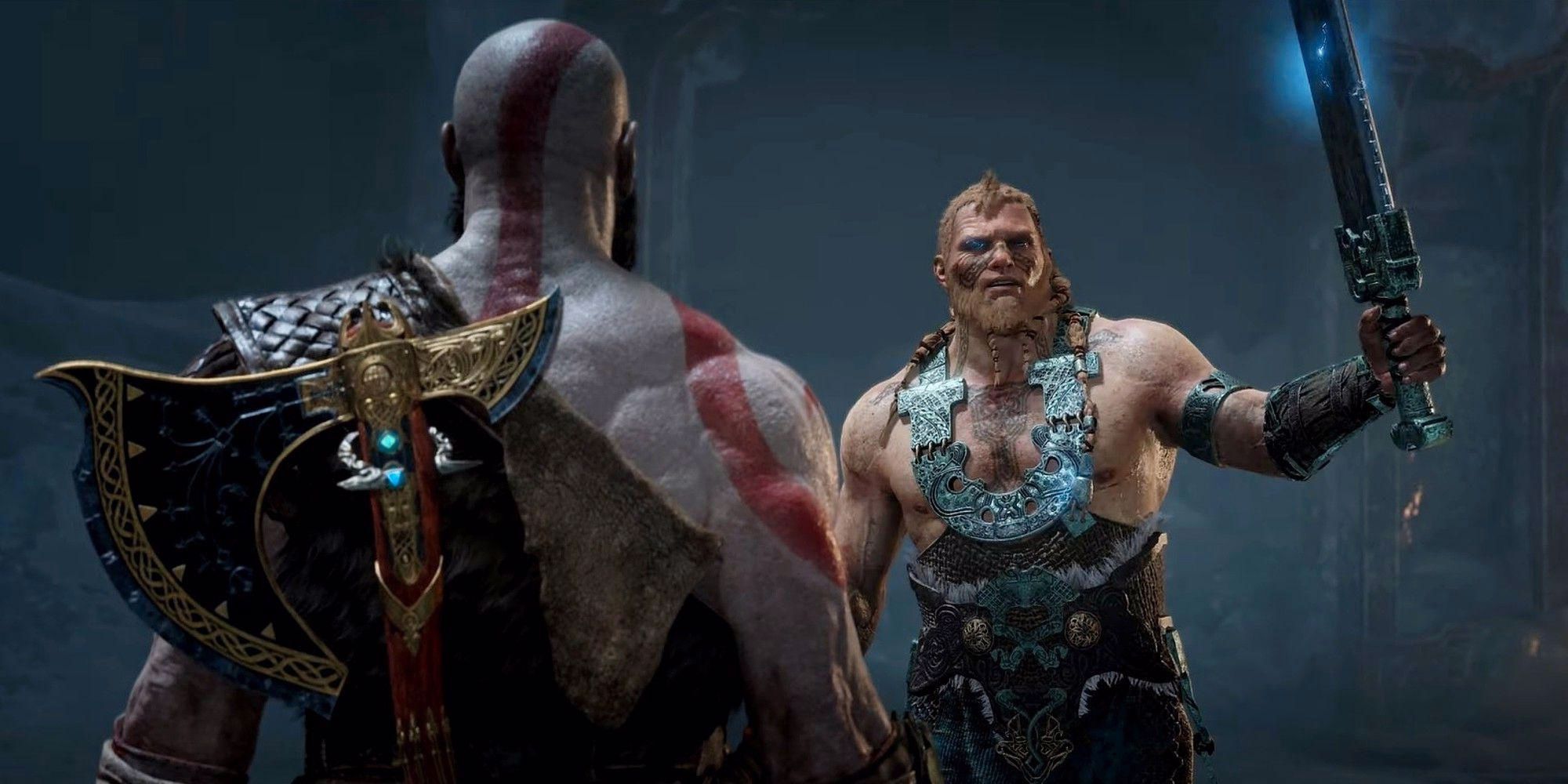
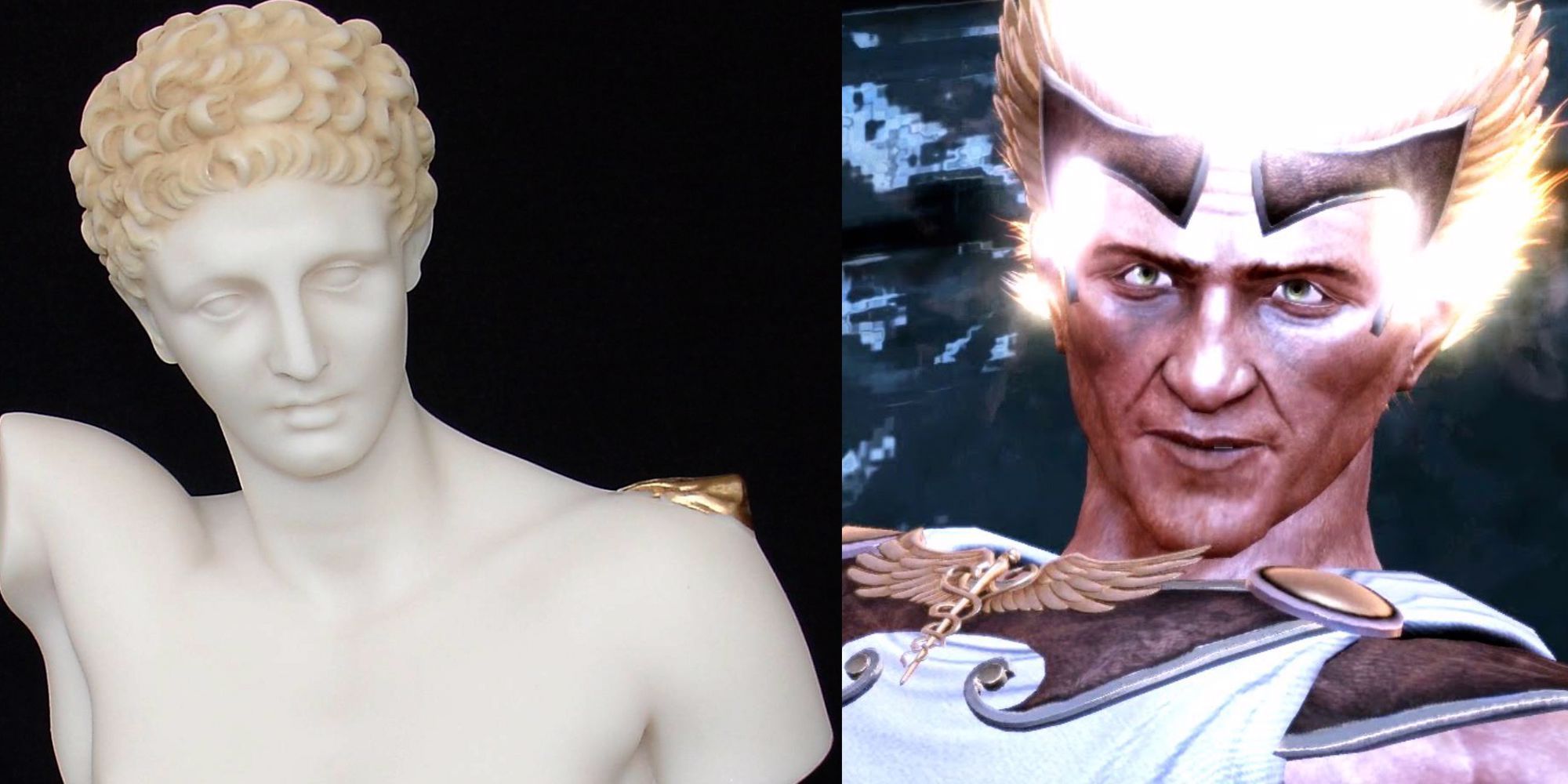
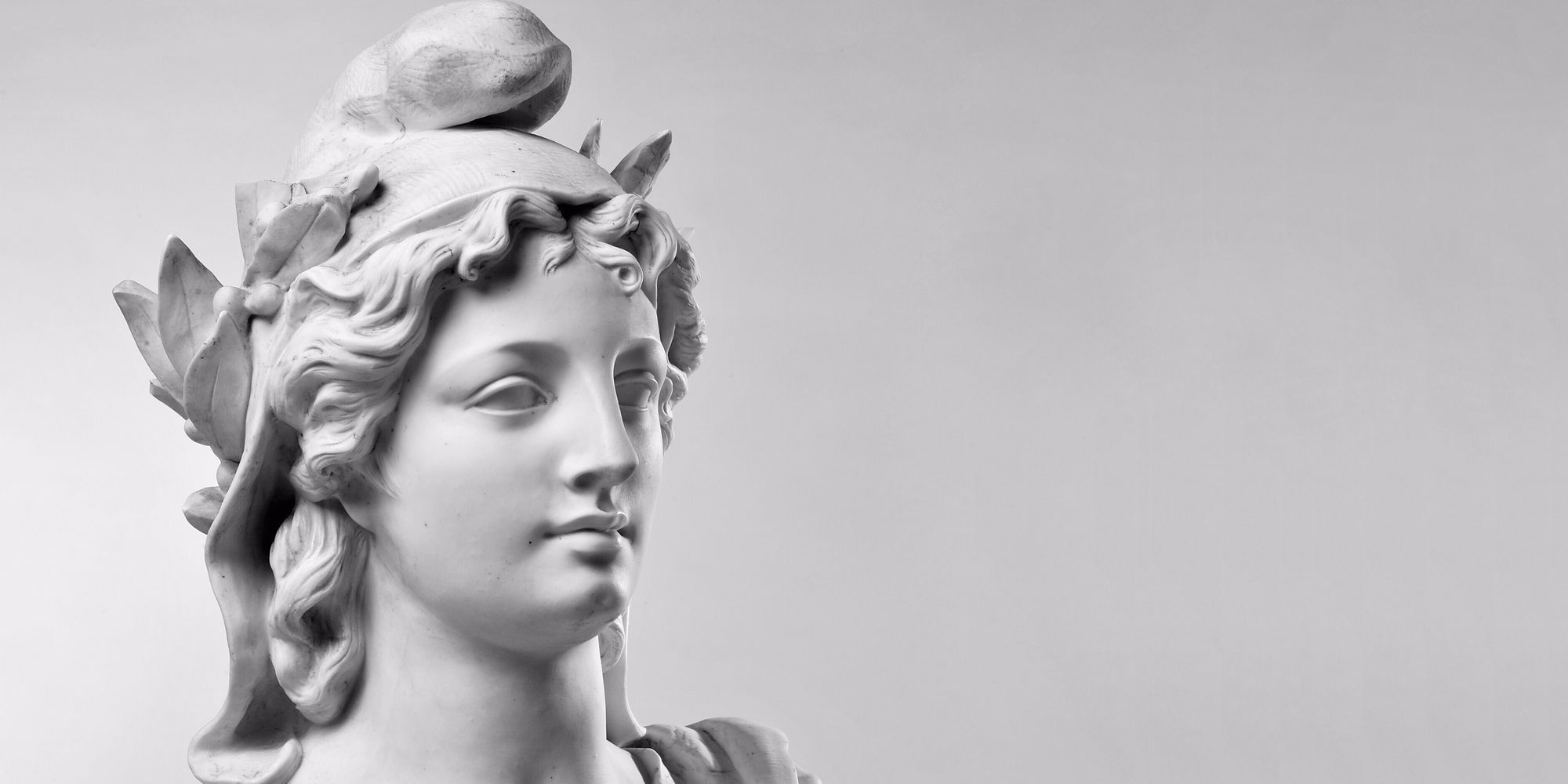
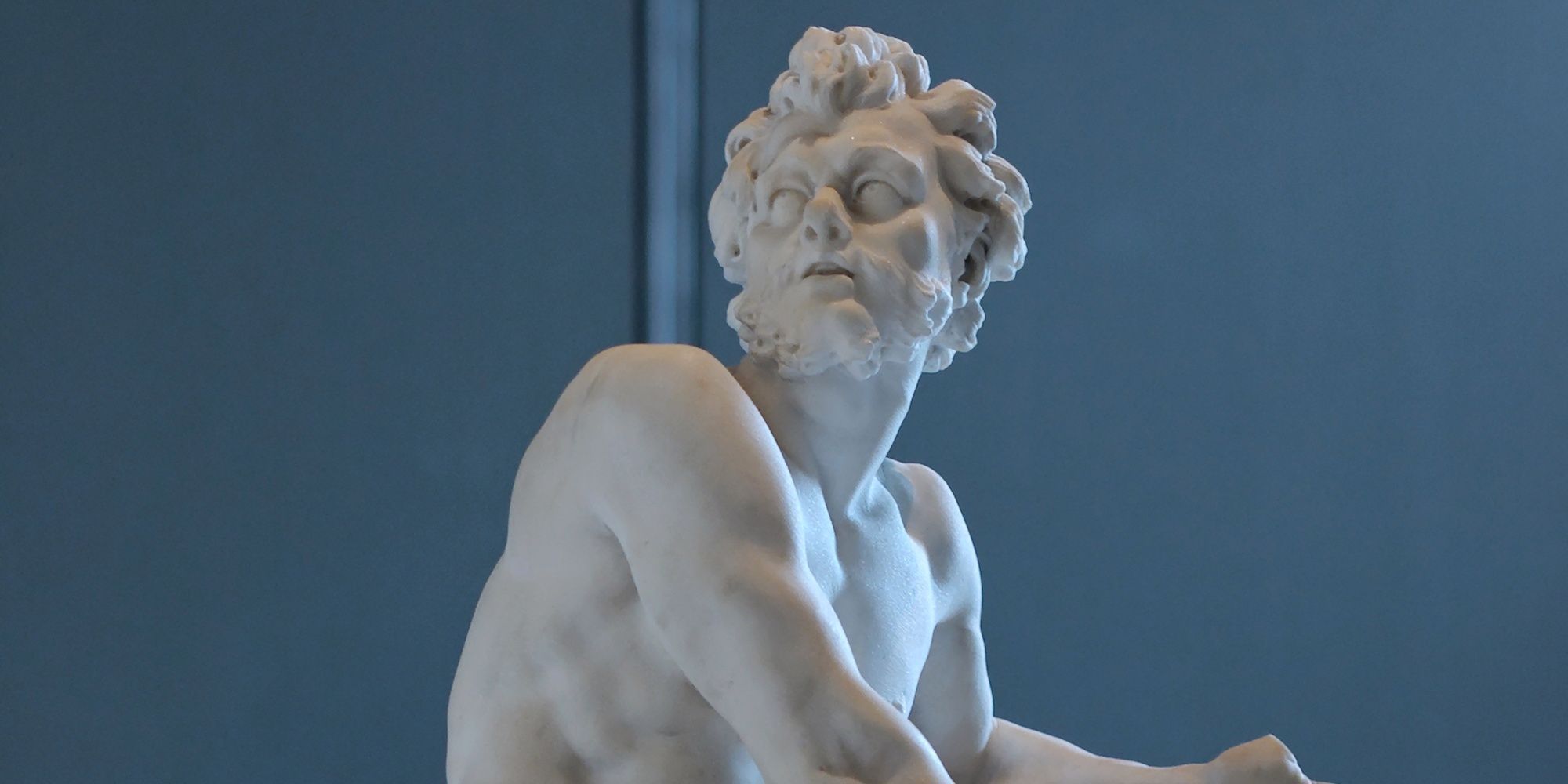
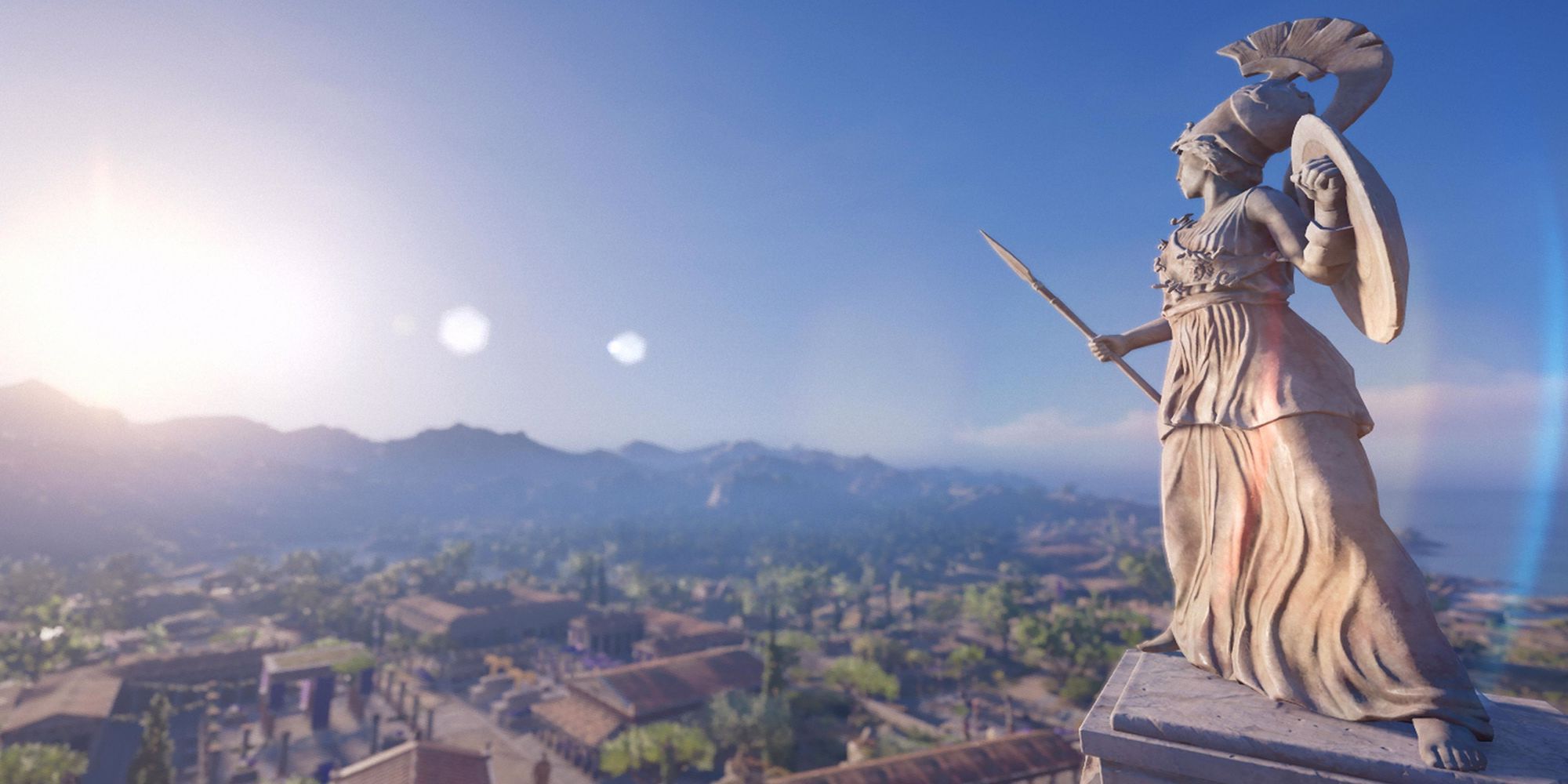
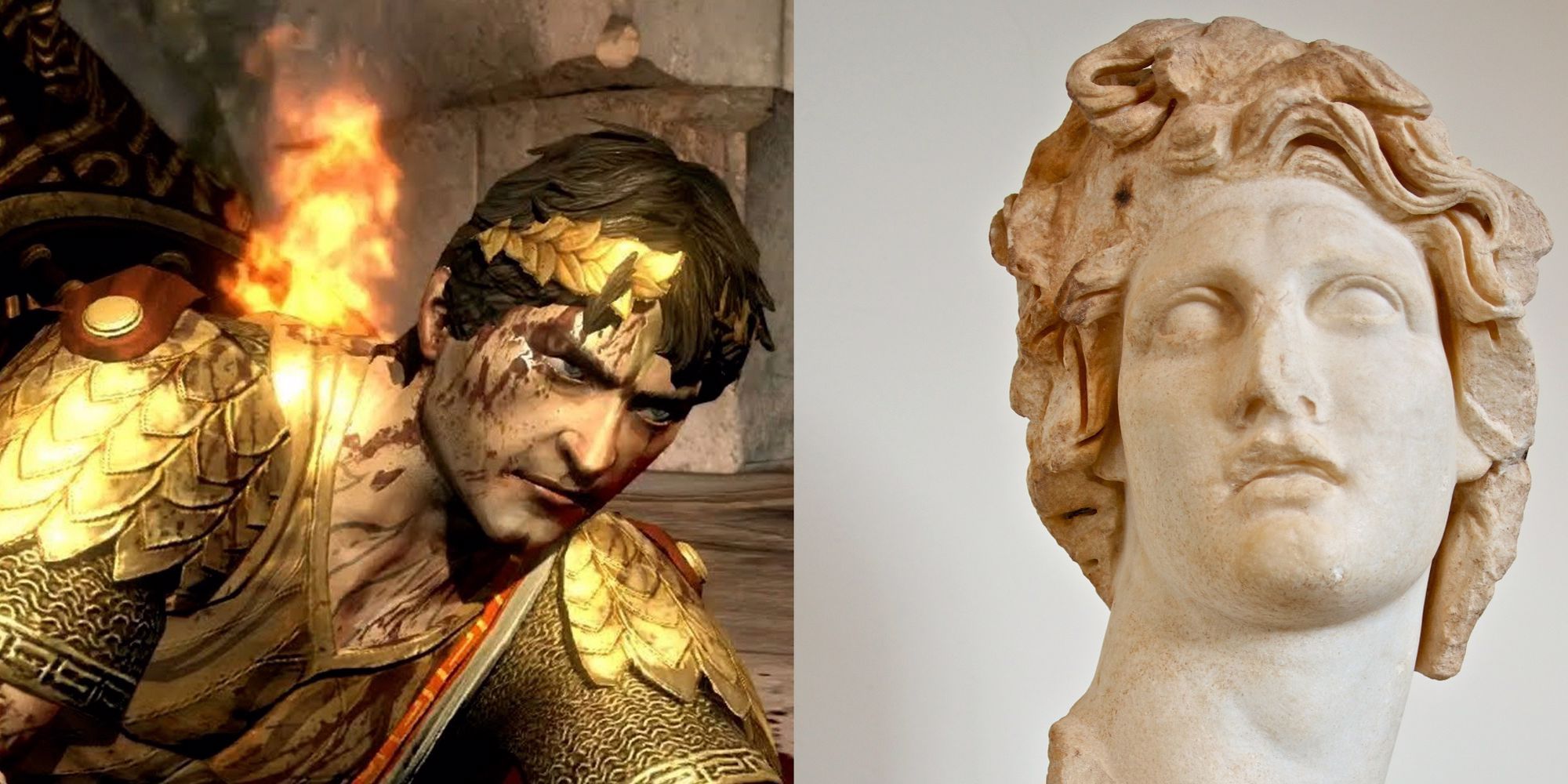
.jpg)
